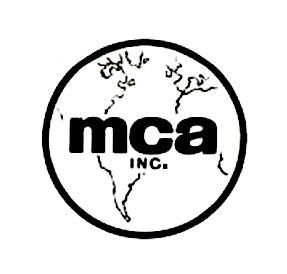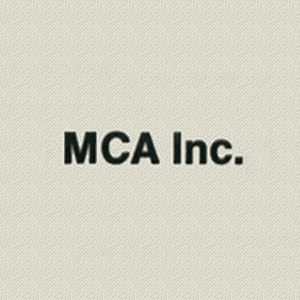MCA Inc.
Настоящее имя: MCA Inc.
US record company and parent company for MCA publishing companies, affiliated to ASCAP.
MCA (launched in 1924) stands for Music Corporation of America. Originally, MCA was a booking agency until after the 1930s Prohibition law era, which passed down the "Rules of the Road", set up by co-founder Jules Stein. It prevented the company from being a media production label and talent representation platform at the same time as it could have violated FCC legislations. Therefore, it was separated into divisions, but still operated under one banner.
In 1940, MCA earned a reputation for being an "octopus", having represented for movie stars, music artists, directors, radio personnels and athletes, but the U.S. Department of Justice began investigating the company as if it was monopoly, operating with the criminal underground and breaking antitrust laws. Eight years later, the company expanded their focus into television. They were granted a waiver from the Screen Actors Guild committee. In 1950, MCA Television launched for syndication while they acquired Revue Studios as a production label. Another eight years following, in 1958, MCA bought the Universal Studios lot for $11 million. Finally, after the company acquired Decca Records, Inc. in 1962, Universal Pictures officially became a wholly owned subsidiary of MCA Inc. The same year, the U.S. DOJ struck back at MCA again, believing that their acquisition of Decca/Universal would be a violation of antitrust, causing the company to shutter its talent agency division.
In 1966, MCA would create Universal Television as a replacement to the now-folded Revue Studios, while also acquiring Kapp Records and Uni Records the following year. In 1967, Decca, Uni and Kapp were unified under MCA Records. A mid-majority of Uni or Decca artists were moved to MCA. Jules Stein departed from the company in 1973, with Lew Wasserman became chairman and CEO. In 1979, MCA Records acquired ABC Records, Dot Records, Impulse and Paramount Records from Jack Friedman, Paramount Pictures and Capital Cities/ABC Inc. respectively, ultimately folding three and leaving Impulse open. 1985 saw more acquisitions; this time, of LJN Toys Ltd., Chess and Motown. GRP and Geffen Records were also brought along five years later. In 1984, Walter Lantz Productions, Inc. was acquired by MCA and soon folded, leaving Universal Pictures the new owner of the Woody Woodpecker collection.
In November 1990, MCA was bought by Japanese electric powerhouse Panasonic for $6.59 billion USD. As the FCC ruled that international companies could not own over 25% of a company that owned a U.S. television network or video game company, MCA forcibly sold off WWOR-TV to Pinelands and LJN to Acclaim Entertainment.
In 1995, Panasonic decided to spin off MCA by selling 80% of it to Canadian distillery company Seagram. That same year, MCA acquired Interscope Records after the label lost its partnership with Atlantic Records over controversy surrounding gangster rap. Finally, in December 1996, MCA Inc. was corporately rebranded into Universal Studios, Inc., as so its music subsidiary MCA Music being rebranded as Universal Music. By that time, MCA Records and its Nashville division were the two labels with the "MCA" name left standing. On December 31, 1998, MCA's former music division was combined with Seagram's recently-acquired PolyGram division, unifying both factions together to become the biggest music company in the industry, the Universal Music Group. In 2003, MCA Records was absorbed into Geffen Records, a one-third of the Interscope Geffen A&M group, while MCA Nashville is under the operation of UMG Nashville. Decca Records is active as well, but is in charge of MCA's classical music catalogue through Deutsche Grammophon.
As for Universal Pictures, the company is now owned by NBC Universal through Comcast, while it remains separated from Universal Music Group, B.V.
Also appears as:
MCA, Inc.
MCA, Inc
MCA Inc

